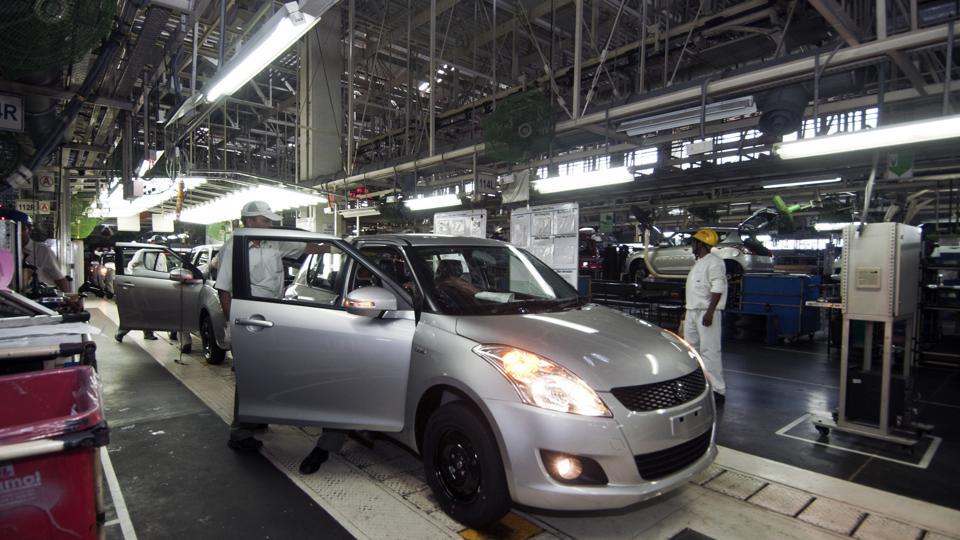Maruti Recalls Over 1000 Vehicles
July 25, 2018 | Expert Insights

Maruti Suzuki is set to recall 1,279 vehicles manufactured between May 7 and July 5, 2018 due to possible faulty airbag controller units.
Background
Maruti Suzuki India Ltd (formerly Maruti Udyog Ltd) is India's largest passenger car company accounting for over 50% of the domestic car market. The company is a subsidiary of Suzuki Motor Corporation of Japan. The Japanese car major held 56.21% stake in Maruti Suzuki as of 31 December 2017. They are engaged in the manufacture, purchase, and sale of motor vehicles and spare parts. Other activities include facilitation of pre-owned car sales management and car financing.
The 80’s in India was propelled into an era of monumental change with the 1983 Maruti 800, based on the Suzuki Alto Kei model. Although Maruti was importer of cars in India’s closed economy, the production of Maruti 800 cars, marketed for the rising middle class of India’s proliferating commercial hubs, revolutionised the automobile sector. By the time of liberalisation, number of car owners tripled primarily due to Maruti’s affordable automobiles.
By 1991, 65% of the components, for all vehicles produced, were indigenized. After liberalization, Suzuki increased its stake in Maruti to 50%, entering a 50-50 Joint Venture with the Government of India. The highly profitable JV had a near monopolistic trade in the Indian market, driven by a newly skilled Indian labor force working within the larger US-Japanese factory methods. However, in 2000 a major industrial relations issue led to Maruti employees launching an indefinite strike, demanding major revisions to their wages, incentives and pensions.
Over the next decade and a half, Maruti Suzuki has released relatively high-mileage cars suited to the needs of the wide spectrum of Indian consumers. To further facilitate purchases, the company signed pact with Shriram City Union Finance to offer easy transparent and hassle-free car finance to its customers particularly in semi urban and rural markets.
Analysis
“Starting July 25, 2018 owners of the vehicles included in this recall campaign will be contacted by Maruti Suzuki dealers for inspection and replacement of the faulty part free of cost,” according to a statement from India’s largest automobile producer. They will recall 566 new Swift and 713 new Swift Dzire cars for inspection.
It is the second of such incidents within two months. In May, they recalled 52,686 units of the new Swift and Baleno to fix brake vacuum hoses. The Baleno has been earlier recalled in May 2016 for a faulty airbag issue as well.
Maruti shares fell by 1% after the announcement. The stock was in the news recently after rolling out its 20 millionth car. It took the company 34 years to get to this milestone. Only five million were produced in the first 21 years.The stock has gained around 11% in the past one month.
Automobile manufacturers in India follow a voluntary recall policy adopted by industry body SIAM in July 2012, under which if a company is of the opinion that there is a manufacturing defect that compromises the safety of vehicles, it will rectify the problem free of cost to the customer.
With automobile market continuing to reel under a slump, major car makers Maruti Suzuki India and Toyota Kirloskar Motor reported decline in domestic sales in May, while Honda and General Motors posted good growth in the past.
In the situation that Germany and other EU automobile hubs search for new markets for their cars, they might face skeptical Indian consumers. Dirty engines and high fuel consumption of middle to high-end car producers, from Volkswagen to Audi, do not cater to the needs of the Indian market, already under the duress of high fuel prices.
Small cars, particularly hatchbacks and compact sedans, account for about 70% of India’s passenger vehicle market. This is due to India’s preference for fuel-efficient vehicles that are cheap to own and easy to manoeuvre in congested cities and narrow village roads. Nevertheless, the lure of the premium tag has made companies like Suzuki to experiment by bringing in their higher-end vehicles.
With record levels of pollution and traffic, Kenichi Ayukawa, managing director and CEO of Maruti Suzuki, under whom the carmaker has stamped its complete dominance over the Indian market, says the company may have to re-invent itself and “start again from zero”.
Carmakers have been asked by the government to rapidly shift from the current BS-IV emission norms to the much stricter BS-VI by April 2020, skipping an intermediate level. Yet, compared to European companies, Suzuki has not staked a significant cut of the niche market for electric cars.
For Suzuki, protecting its turf in India is linked to its own survival as half of its revenue comes from Indian sales.
Assessment
Our assessment is that Maruti Suzuki will have to ensure existing car production lines are flawless to prevent shifts in demand for affordable cars by the increasingly wealthy middle class. We believe that the decline in quality concerns of Japanese products is raising eyebrows among consumers around the world, thus, affecting their share of the global market. We feel that this will affect the pioneers of quality products, as Toyota, Kobe, Sony and other Japanese giants have faced issues in the past.








Comments